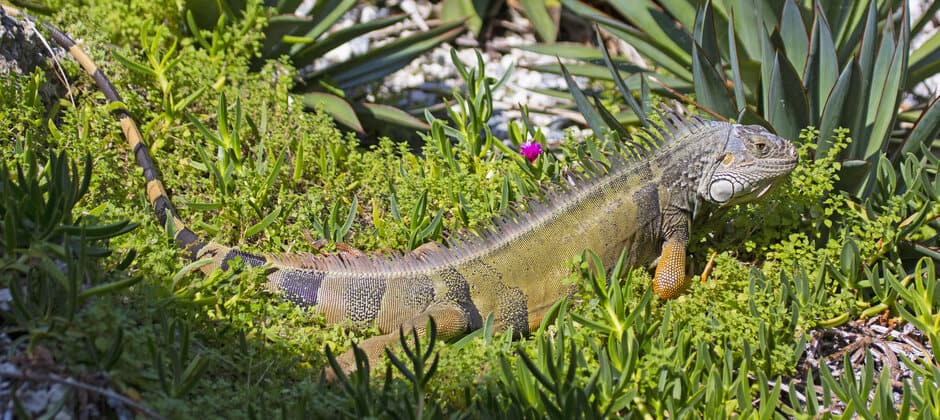Share this article
Florida restricts high-risk invasive reptiles
Florida recently approved new rules to manage the importation, breeding, and possession of invasive reptile species that pose a high risk to native ecosystems.
In a February meeting, the Florida Fish and Wildlife Conservation Commission voted to add 16 high-risk non-native reptile species to a prohibited list. These species can only be kept for educational, research, or control and eradication purposes, and can no longer be imported, bred commercially, or kept as pets in Florida.
The new rules do not affect pets that were owned before the changes take effect, as long as those pet owners maintain proper permits. Pet owners will have 90 days to comply with the new regulations and 180 days to meet new outdoor caging standards.
The rules include some exceptions. Although imports of green iguanas (Iguana iguana) and tegus (genera Salvator and Tupinambis) will no longer be permitted, current owners of these species may continue to commercially breed them until June 30, 2024. After that date, selling these species in Florida will be banned completely.
Other reptiles added to the prohibited list include green anacondas (Eunectes murinus), Nile monitors (Varanus niloticus), and six species of python (genera Python and Morelia), including Burmese pythons (Python bivittatus). Each of these species are prevalent throughout the state and are negatively affecting native Florida wildlife and the Everglades ecosystem. Record numbers of pythons have been detected in the Florida Everglades recently, where they can reach enormous sizes and prey on native wildlife like raccoons (Procyon lotor), bobcats (Lynx rufus), and marsh rabbits (Sylvilagus palustris).
“Addressing invasive species, such as the ones listed in this rule package, is extremely important for the preservation of our native species and the health and safety of our residents and visitors,” said Eric Sutton, Executive Director of the FWC, in a press release.
In its new rules, the FWC also clarified regulations for its Exotic Pet Amnesty Program, which promotes responsible pet ownership and facilitates the adoption of surrendered non-native pets. The program is an effort to reduce the number of invasive species being released into the wild by pet owners who no longer wish to keep their pets.
According to the FWC, escape or release by pet owners is the most common way that exotic fish and wildlife species enter the wild in Florida. More than 500 non-native species have been reported in Florida, and 80% of these have been introduced through the pet trade, according to a press release. Species like tegus are also becoming established elsewhere in the southeastern U.S. due to the pet trade, and scientists warn that climate change could facilitate the spread of introduced invasive species.
Florida Commissioners also approved the creation of a Technical Assistance Group that will develop a comprehensive regulatory approach to managing non-native species in the state. The group will include representatives from the pet industry, environmental groups, and other interested stakeholders.
Read TWS’ Position Statement on Invasive and Feral Species.
Header Image: The Florida Fish and Wildlife Conservation Commission voted to prohibit the importation, breeding, and possession of 16 high-risk invasive species, like the green iguana (Iguana iguana). Credit: FWC Photo by Andy Wraithmell








